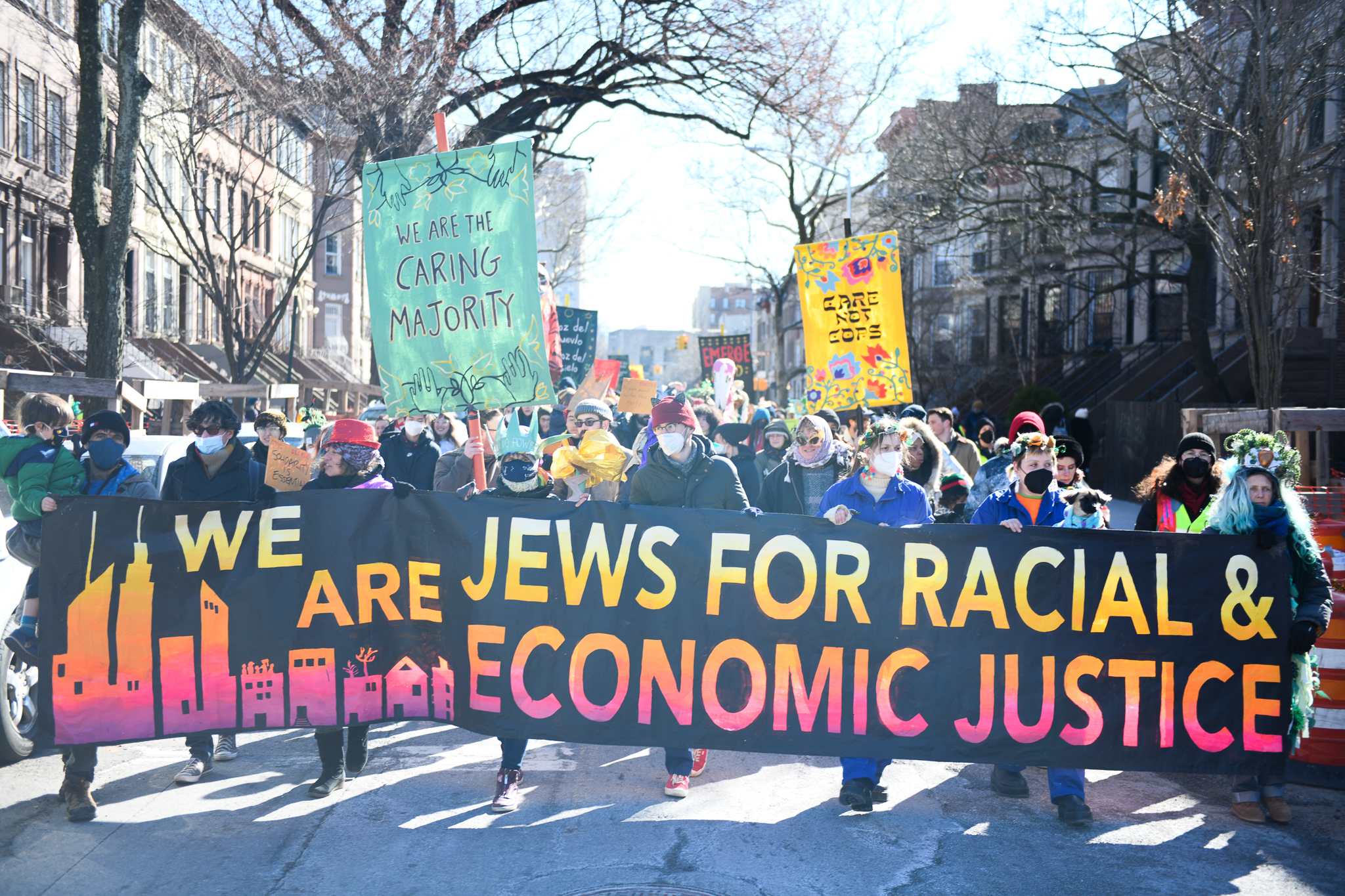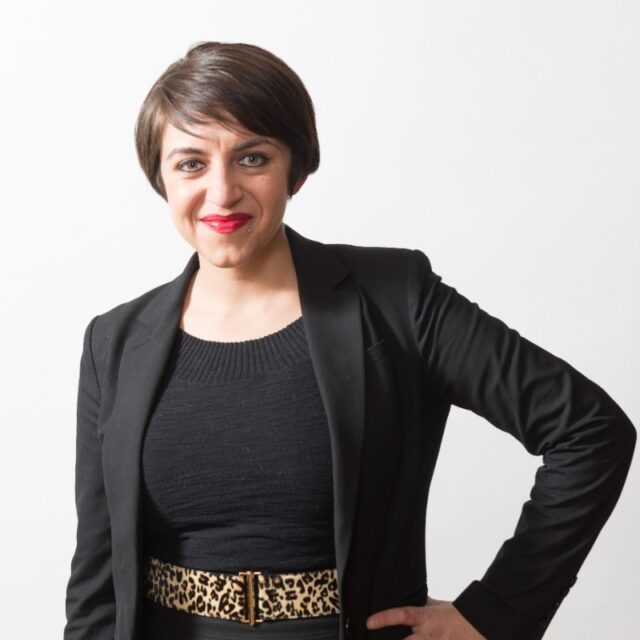
The Jewish Liberation Fund (JLF) began with a small group of volunteers in Brooklyn, New York who identified a gap in the Jewish philanthropic landscape. Progressive, social justice-oriented Jewish philanthropy was far less organized than its conservative counterparts and less responsive to the needs of social movements than secular philanthropy. JLF was formed in 2017 to help fill that gap and elevate different voices and perspectives in the space. JLF’s steering committee is composed of Jews of color and Mizrahi and Sephardic Jews, two of the ethnic subgroups in the Jewish community that are underrepresented in leadership in the United States. As part of their commitment to building a more diverse, inclusive, and intersectional movement, JLF practices participatory grantmaking and does not impose limitations on grantees around Anti-Zionism or Boycott, Divestment, and Sanctions (BDS) support.
JLF’s grantmaking, the largest core areas of its work, is specifically focused on funding progressive Jewish movement-building work, providing needed support to grassroots organizers and spiritually nourishing arts and culture efforts. Working along the grassroots and grasstops, JLF also organizes small donors and helps major funders build deeper, more meaningful relationships with social justice movement leaders. As JLF grew from its initial state as a volunteerbased organization and eventually landed on fiscal sponsorship as the right structure, the fund partnered with Proteus Fund in early 2020 and launched publicly later that year.
JLF continued to grow into 2022, which ended up being its largest year of grantmaking with roughly $550,000 going to 39 grantees. Director Joanna Ware says that this “scale of grantmaking would have been impossible without Proteus’s support.” In 2022, JLF also began piloting a funder organizing project, starting with a three-part education series for trustees, board members, and staff of smaller Jewish family foundations. The goal of the series was to support these foundations in becoming more effective partners to social justice movements by helping them gain a deeper understanding of how those movements operate and intersect. JLF engaged participating funders in sharing the challenges they face in shifting to more equitable, movement-focused funding practices.
The education series directly informed a fellowship, specifically for people connected to funding entities, which JLF is now launching to help guide changes to their philanthropic practices. With that fellowship coming to fruition and more exciting work on the horizon, Ware says having allies beyond the Jewish community through Proteus Fund and its other fiscally sponsored projects is hugely beneficial.
